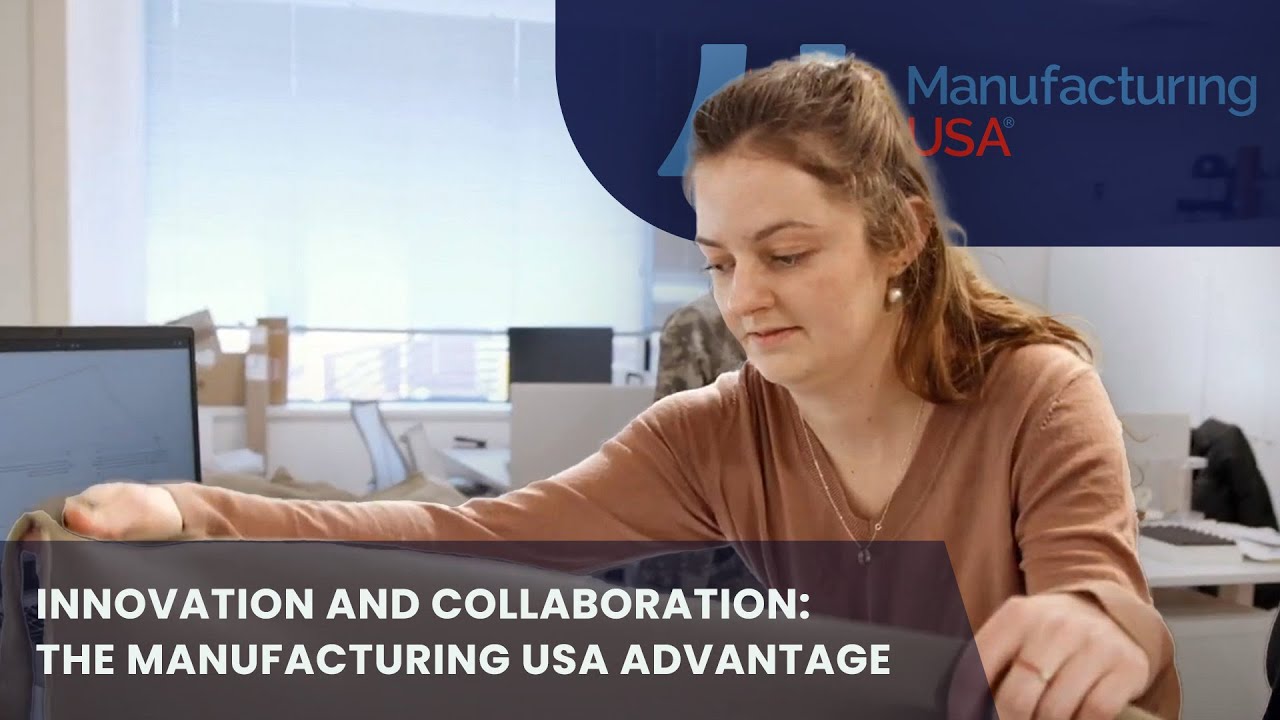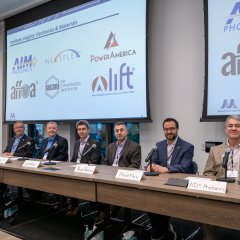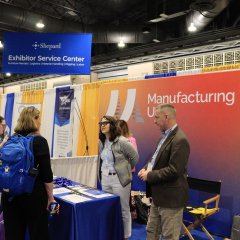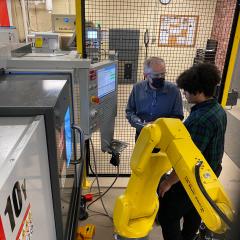News
Advanced Functional Fabrics of America ( AFFOA ), a non-profit Manufacturing USA Institute driving fiber and fabric-based innovation in the US has announced a strategic partnership with Advanced Textiles Association® (ATA), leveraging ATA’s signature Talking Textiles podcast . This partnership will produce a special series of insightful episodes...
Each year, the NIST Office of Advanced Manufacturing enjoys the unique privilege of convening the Manufacturing USA network for its annual meeting. The 2025 Manufacturing USA Network Meeting was an energizing gathering of over 80 representatives from the program’s 18 manufacturing innovation institutes and supporting federal agencies. Over a day...
What do color-changing slime and 3D-printed rings have to do with careers in manufacturing? Both were part of the fun and engaging activities shared with attendees at the National Science Teachers Association (NSTA) National Conference to demonstrate the possibilities of science and technology opportunities in industry.
In late March...












